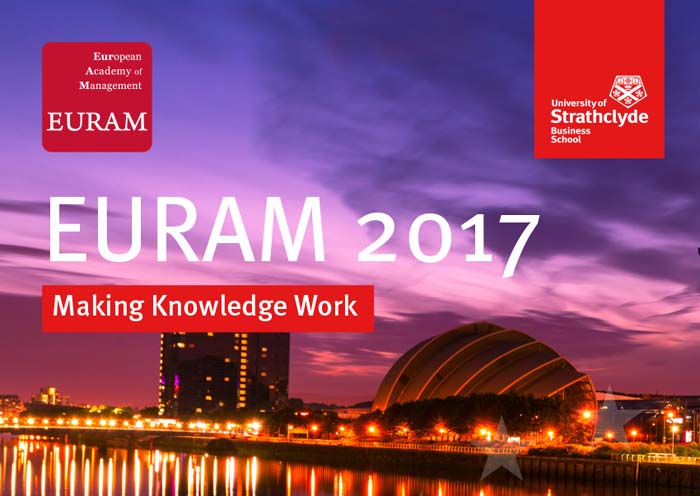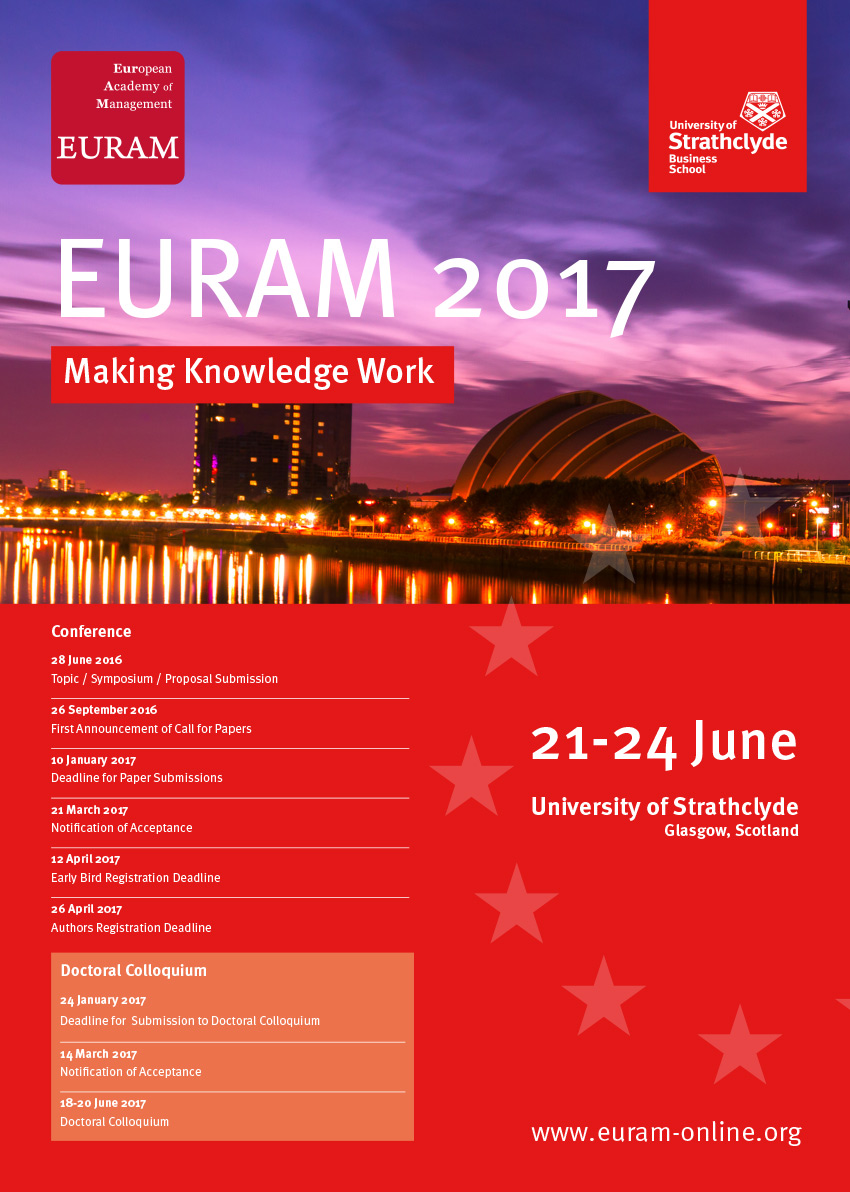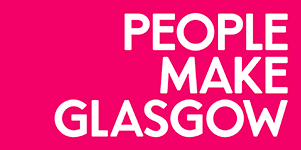
Hello from Glasgow!
The 2017 EURAM conference has taken place. I really enjoyed it and thank you to all participants for coming to Glasgow.
The conference theme was ‘Making Knowledge Work’. I think that our first plenary about ‘Responsible Research in Business and Management’ was particularly topical, as it questioned the relevance of management research. Are we to be assessed on how many articles we manage to get published, which tend to be mostly read by fellow management scholars? Or are we to be assessed on how much we can engage with actual management problems and whether we have an active role in finding solutions? In my observation, these questions have been uttered in the corridors of management conferences many times. This year’s EURAM conference was one of an increasing number of occasions where these existential questions were part of the official conference programme. Of course there was debate between panel members Anne S Tsui, Stewart Clegg, Mats Alvesson and Stéphanie Dameron, and with the audience, about how change could be achieved and what this change should look like. But it looks like there is a growing momentum in the academy that change is needed and that relevance is paramount; that the knowledge we generate is only worthwhile if we can use it in practice.
Interestingly, in the ‘Meet the editor’ session that I was chairing later in the conference, some of the editors explained that journal policies are starting to move too, as they explicated they are looking for alterative paper formats, and are open to innovative ways to do research and write papers. Nevertheless, there was also an editor who advised that the only way to make an academic career is to stick to the current template, appearing to imply that management scholars do not need to bother with relevance.
Our second plenary was a bit out of the ordinary as well. Instead of focussing on a scholarly topic, we had decided to look at the changes going on in society. Rather than inviting prominent management scholars to debate a current issue in our field of study, we took it wider and explored ‘The Changing European Political Landscape’. The panel consisted of two people who are involved in the changes: President of the European Committee of the Regions Markku Markkula and Director of Statistics and Chief Statistician of the OECD Martine Durand. And we had two panel members who are studying these changes: Professor of Politics John Curtice and International Political Economy Professor Richard Higgott. For me, this experiment was worth the effort, as I learned so much about the wider environment in which our scholarship takes place.
All in all, I hope that just like me, you think of EURAM 2017 as a useful experience. It is now up to our Icelandic colleagues to take on the baton and prepare for EURAM 2018 in Reykjavík.
Prof. Harry Sminia
EURAM 2017 Conference Chair









